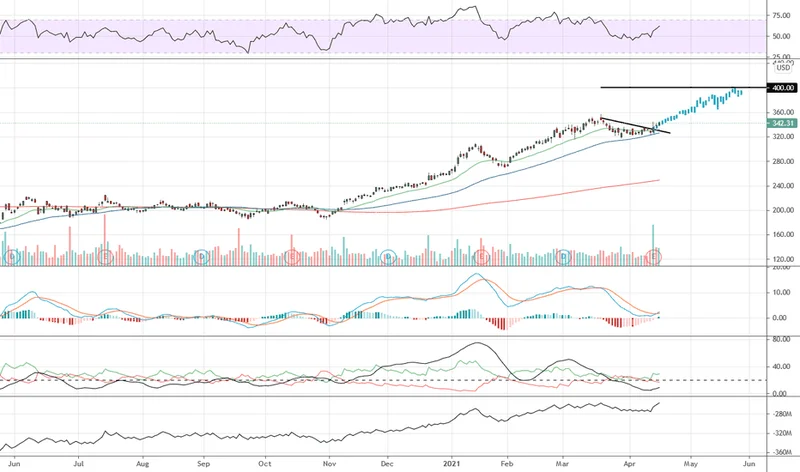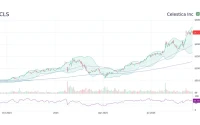So let me get this straight. Goldman Sachs, the vampire squid of Wall Street itself, just dropped an earnings report that looks like it was written by a Hollywood screenwriter. They beat revenue estimates by over a billion dollars. They smashed earnings-per-share predictions. Net interest income shot up a staggering 64%. They’re number one in M&A, their assets under supervision hit a new record, and they’re practically showering shareholders with buybacks and dividends.
By all accounts, David Solomon and his crew should be taking a victory lap, popping champagne on a mountain of cash.
Instead, the stock dropped over 3% in premarket trading.
You see the disconnect here? It’s the kind of thing that makes you wonder if you’re reading the numbers upside down. On paper, it’s a masterpiece. In reality, Wall Street looked at it, squinted, and collectively said, "Nah, we're good." This is why you see headlines like Goldman Sachs stock dips after Q3 expenses, headcount climb; earnings and revenue beat (GS:NYSE), and that, my friends, is where the real story is.
The Perfect Picture with a Crack in the Frame
Let's not kid ourselves. The top-line numbers are gorgeous. A 20% jump in revenue to $15.18 billion is nothing to sneeze at. Their investment banking arm is firing on all cylinders, M&A is booming, and they've had 31 straight quarters of inflows to their asset management division. Thirty-one. That’s nearly eight years of people handing them money and saying, "Please, make this grow."
It’s the financial equivalent of a perfect family photo. Everyone’s smiling, the lighting is perfect, and the background is a pristine beach. But if you look closer, you start to see the cracks.
The real tell, the detail that gives the whole game away, is buried under the mountain of good news: Operating expenses rose 14% year-over-year to a cool $9.45 billion.

This is a red flag. No, a red flag is too small—this is a giant, flashing, stadium-sized neon sign of a problem. It’s like owning a Ferrari that gets three miles to the gallon. Sure, it’s fast and looks incredible, but the cost of just keeping the thing running is eating you alive from the inside out. Goldman is bragging about the speed, but the traders on the floor are clearly worried about the fuel bill. What good is record revenue if it costs you a record amount to earn it?
Are we really supposed to ignore a nearly $10 billion expense line item? Is that the new normal? I've seen smaller countries with more transparent budgets. It just ain't sustainable.
Deconstructing the Corporate Haiku
This brings us to the inevitable quote from the CEO, David Solomon. Every earnings report has one, and it’s always a masterclass in saying absolutely nothing of substance. He talks about the "strength of our client franchise" and an "improved market environment."
Let’s translate that from PR-speak into English. "Strength of our client franchise" means "Our existing rich clients are still rich and need a place to park their cash." "Improved market environment" means "We got lucky that the entire economy didn't fall off a cliff this quarter." It’s taking credit for the tide coming in.
But the real gem is this line: "Longer term, we are prioritizing the need to operate more efficiently to seamlessly deliver the firm to our clients helped by new AI technologies."
Bingo. There it is. The "AI will save us" Hail Mary. Whenever a legacy company with bloated costs doesn't have a real answer for why their expenses are spiraling, they gesture vaguely toward a magical "AI" future. It’s the ultimate distraction. It’s like a magician yelling "Look, a robot!" while his other hand quietly lifts your wallet. They’re admitting, without admitting it, that they are not operating efficiently right now. The promise of future AI efficiency is just a flimsy excuse for present-day bloat.
What are these "new AI technologies" anyway? Are they building a ChatGPT that can sweet-talk regulators? An algorithm to perfectly predict the market? Offcourse not. More likely, it's some fantastically expensive new software suite that will require an army of consultants to implement and will probably just add to the expense line in the short term. It's a solution that sounds good in a press release but rarely fixes the fundamental cultural or structural problems that lead to inefficiency in the first place. And we're supposed to just nod along...
So You Think You're Winning?
Here's the bottom line. Goldman Sachs just threw a lavish party, complete with fireworks and an open bar, to celebrate its financial performance. But the market looked at the bill for the party and decided to leave early. All the record revenues in the world don't mean a thing if the cost of achieving them is unsustainable. This wasn't a report showing a healthy, efficient machine. It was a report showing a brute-force engine, one that generates incredible power by burning through cash at an alarming rate. And sooner or later, that fuel tank runs dry.









